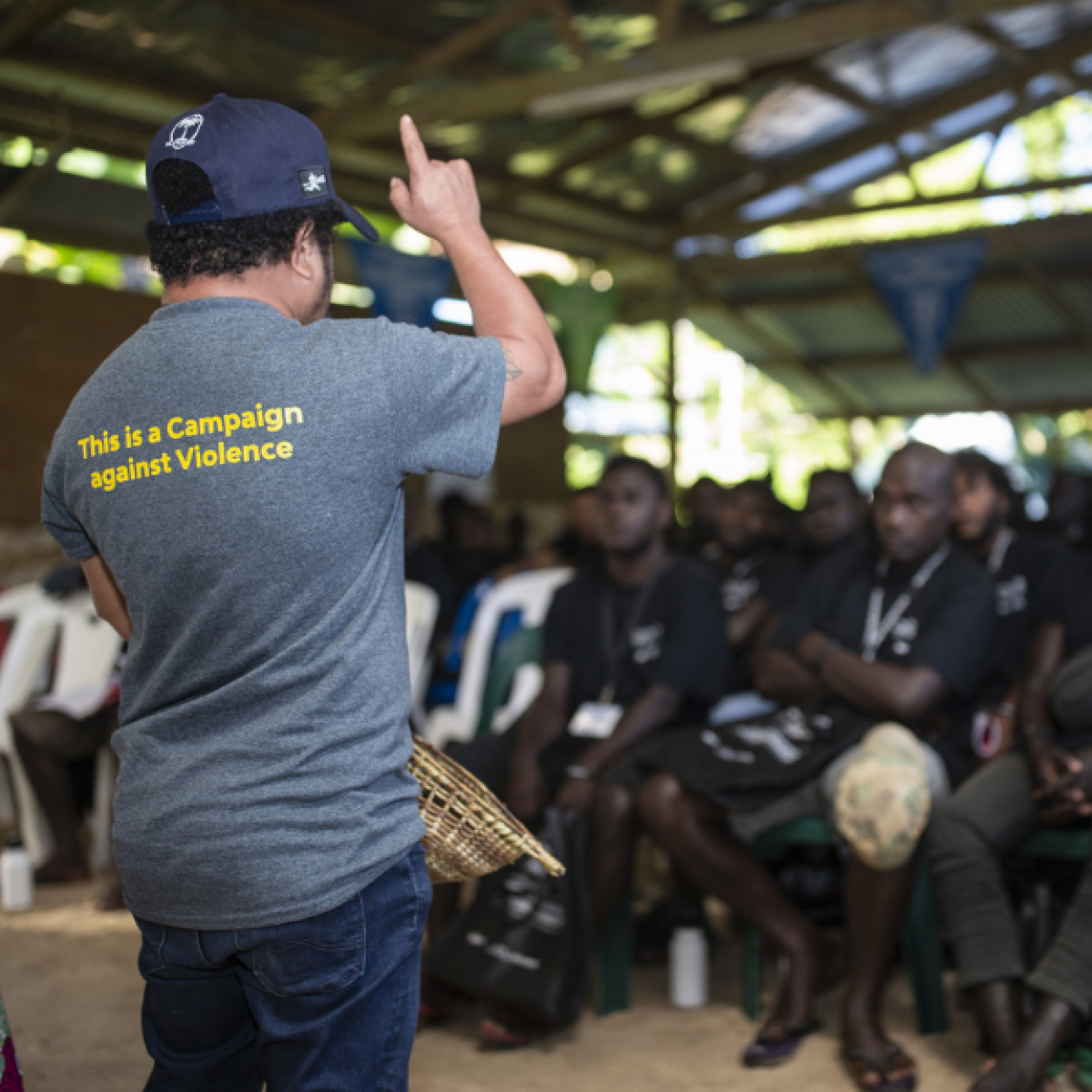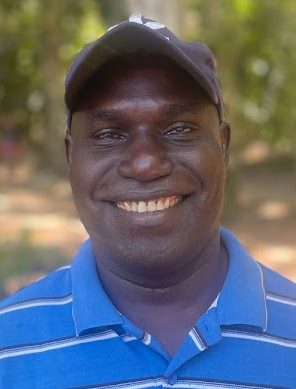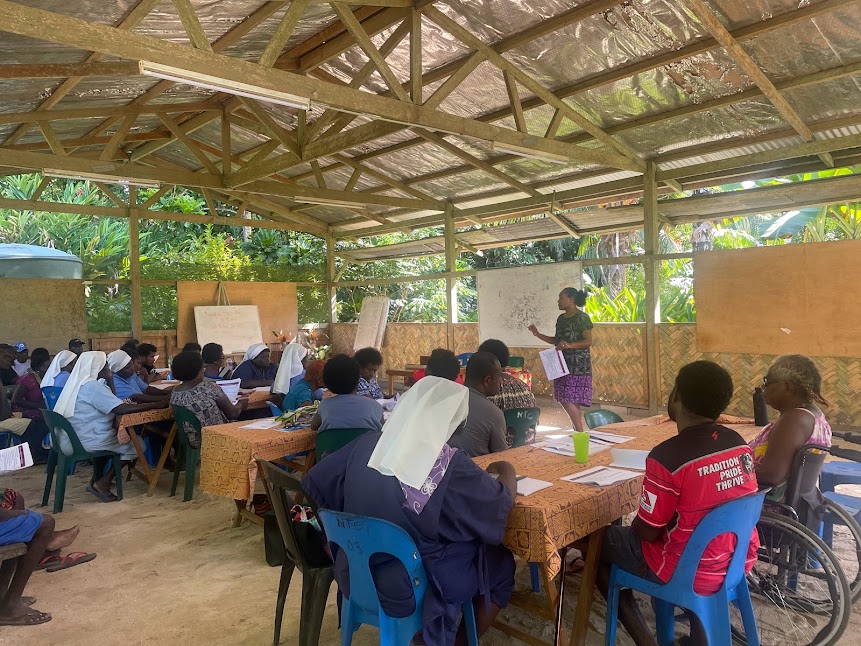
Meet the men taking on gender-based violence in Bougainville
The office of Nazareth Centre for Rehabilitation (NCfR) is, in many ways, a haven.
Located in Chabai, Bougainville, it’ll take you two flights, a taxi, a small boat ride and another 40-minute drive to reach from Port Moresby – but the journey will be worth it.
Nestled amongst banana trees and lush frangipani trees providing cover to pineapples growing wild, it is a place that is always bustling with activity. And for many women and children in the community, it is an essential safe space when they need it the most.
From running safe houses to providing vital counselling and practical support to women escaping violence, the Sisters who run the centre do essential work here every day to ensure women and girls in Bougainville are safe and have the opportunity to heal. This includes community-changing work that prevents abuse before it even happens through their network of Women Human Rights Defenders. Coordinated by the Centre, they work as educators, defenders, advocates and activists to change attitudes and champion gender equality in their communities.
You might already be familiar with this work or even remember some of the incredible women behind it. But today, we want to tell you about the work that happens in a different side of this office, with a completely different group of people.
Introducing Nazareth’s Men’s Hub
NCfR first established their Men’s Hub in 2015 as a space for their growing male advocacy program – a complementary program designed to work alongside Women Human Rights Defenders to better engage men and boys in building non-violent communities.

“People, especially men, have been treating women as though they have no power and they are not equal with men,” Paul says. “In our communities, there is a culture that brought us to think that men are stronger than women. It is important to talk to people to help them understand that men and women are equal and we can all achieve the same things.”
The Hub offers a different entry point to challenge gender inequality in communities, with male advocates being able to engage with men from a wide variety of backgrounds, including working directly with perpetrators. While difficult work, engaging with perpetrators in this way creates a unique opportunity to drastically change a community and reduce the chance of violence happening again.
“Some of the young boys come back and thank us and say that they have changed their attitudes and behaviours,” Paul shares. “I see it as very important to counsel the male perpetrators because men are the most likely to cause violence against women.”
This kind of work is allowing NCfR to tackle violence at the root and create a whole new group of advocates that can take what they’ve learnt about gender equality and respectful behaviours back to their own communities.
A new model for respectful relationships
Seeing Male Advocates work alongside Women Human Rights Defenders is also having a powerful ripple effect in the community. Through their close collaboration, Male Advocates and Women Human Rights Defenders act as role models for equal and respectful relationships. Their work together offers the community a different example of how relationships between men and women can be navigated as they both learn from, and rely on, each other to create tangible change.
“In our work we advocate for women and we talk about the rights of the women,” Paul explains. “We stand behind Women Human Rights Defenders and work together so that men in the community know about the rights of the women.”
It is this kind of transformative work that is allowing NCfR to prevent violence before it happens, creating broader change in the way men view women and understand their relationships with them – the kind of change that can drastically reshape communities for the better well into the future.
This end of financial year, consider making a tax-deductible donation to make this kind of bold, transformative work to end violence against women possible.

